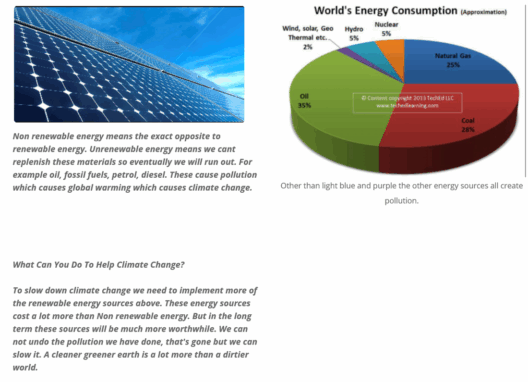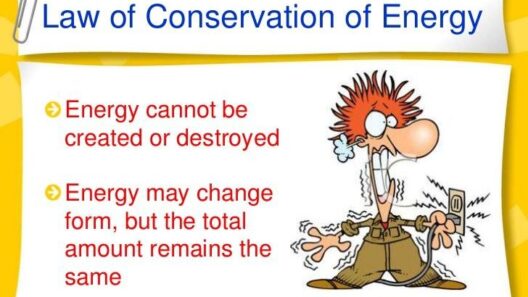Energy conservation is a fundamental concept that permeates various aspects of daily life. Understanding what it means for energy to be conserved can illuminate the importance of sustainability practices and environmental responsibility. This guide provides a comprehensive overview of energy conservation, the principles behind its consistency, and the implications it holds for consumers and the planet.
When we refer to energy conservation, we are discussing the methods and strategies that reduce energy consumption while still maintaining the same level of utility and comfort. This is not merely about turning off lights or unplugging appliances; it encompasses a broader spectrum of practices and technologies aimed at optimizing energy use. By delving into the intricacies of energy conservation, individuals and organizations can better grasp its importance in a world increasingly aware of climate change and resource depletion.
Energy conservation is not an isolated concept; rather, it is closely woven into the fabric of environmental stewardship. Understanding its nuances not only benefits consumers economically through reduced bills but also plays a critical role in reducing greenhouse gas emissions and preserving natural resources.
What Constitutes Energy Conservation?
Energy conservation often simply refers to the act of using less energy. However, it encompasses more than just the physical actions taken to reduce energy consumption. It involves a holistic approach to how energy resources are managed, deployed, and maintained. Here are the vital facets of energy conservation:
Efficiency and Innovative Technology
One of the foremost aspects of energy conservation lies in efficiency. By maximizing the output of energy used through innovative technology, we can effectively conserve energy. For example, LED lighting significantly reduces energy consumption compared to traditional incandescent bulbs without sacrificing brightness or quality. Moreover, energy-efficient appliances, such as refrigerators and washing machines, utilize advanced designs that minimize energy use while providing optimal performance.
Renewable Energy Sources
Embracing renewable energy sources is another cornerstone of energy conservation. Technologies such as solar panels, wind turbines, and geothermal systems harness natural forces to generate energy, significantly reducing reliance on fossil fuels. By transitioning to renewable energy, consumers and businesses can play a pivotal role in decreasing carbon footprints and promoting sustainability.
Behavioral Changes and Lifestyle Adjustments
Energy conservation also necessitates alterations in consumer behavior. Simple changes, such as using public transportation or carpooling, adjusting heating and cooling settings, and incorporating energy-saving habits into daily routines, can lead to significant reductions in energy consumption. Education plays a vital role here, as raising awareness about energy-efficient practices can inspire individuals to adopt conservation methods in their lives.
The Importance of Measuring Energy Consumption
To effectively conserve energy, one must first understand energy consumption patterns. Utilizing energy monitoring devices and smart meters can provide insights into how much energy is being utilized at different times of the day. Analysis of this data allows consumers to identify areas of excessive energy use and implement strategies to curtail it. This level of awareness is crucial—when individuals comprehend their energy habits, they are better equipped to modify them.
The Environmental Impact of Energy Conservation
Energy conservation is inherently linked to environmental sustainability. Reducing energy consumption leads to a decrease in pollutants and greenhouse gases released into the atmosphere, which contributes to climate change. The following illustrates the significant environmental implications of embracing energy conservation:
Lowering Greenhouse Gas Emissions
Energy production from fossil fuels is a primary contributor to greenhouse gas emissions. When energy is conserved, the need for energy generation from these sources diminishes, leading to a direct reduction in emissions. For instance, by opting for energy-efficient appliances, consumers can not only save money but also contribute to a larger effort to combat global warming.
Preserving Natural Resources
Every unit of energy conserved correlates to a decrease in natural resource extraction and depletion. Coal mines, oil drilling, and gas extraction have significant ecological footprints, often harming biodiversity and local ecosystems. By conserving energy, we help minimize the demand for such resources, thus preserving them for future generations.
The Economic Incentives Behind Energy Conservation
In addition to the environmental benefits, there is a compelling economic argument for energy conservation that addresses a key concern for consumers. Lower energy bills associated with reduced consumption can lead to substantial savings over time. Here are some key economic incentives:
Government Incentives and Rebates
Many governments implement policies, tax credits, and rebates aimed at promoting energy-efficient practices and technologies. These financial incentives can substantially lessen the upfront costs of purchasing energy-efficient appliances or home upgrades. Consumers should explore local and federal programs that can ease the financial burden of these initiatives.
Investment in Long-term Solutions
While the initial investment in energy-efficient technology may appear daunting, it’s crucial to consider the long-term returns. The savings accrued from lower energy bills can eventually offset the initial costs, making energy efficiency a financially sound decision for both homeowners and businesses. More importantly, these investments contribute to broader economic stability by fostering a market oriented toward sustainability.
Conclusion: A Collective Responsibility
Understanding energy conservation as a vital practice is essential for fostering a sustainable future. It is not solely about individual behavior—rather, it demands a collective responsibility that encompasses communities, organizations, and governments alike. By making informed choices regarding energy use, embracing technology, and advocating for sustainability, we can significantly impact our planet’s health. Every effort towards energy conservation counts; it is an indispensable strategy in addressing key environmental issues and securing a sustainable future for generations to come.







